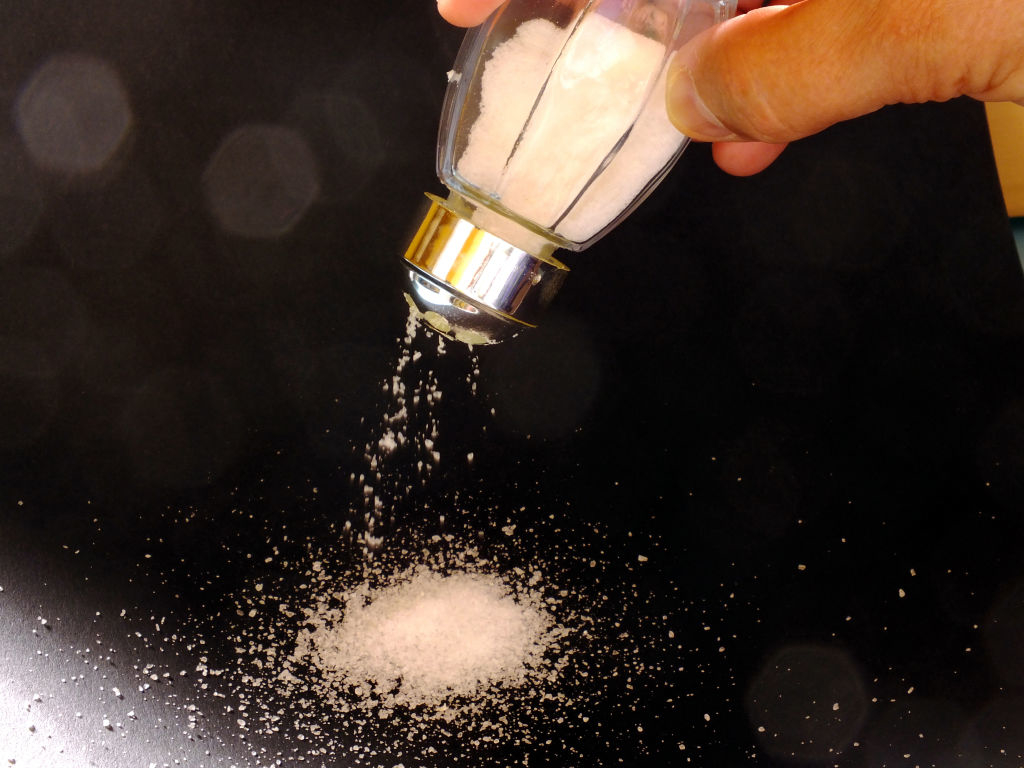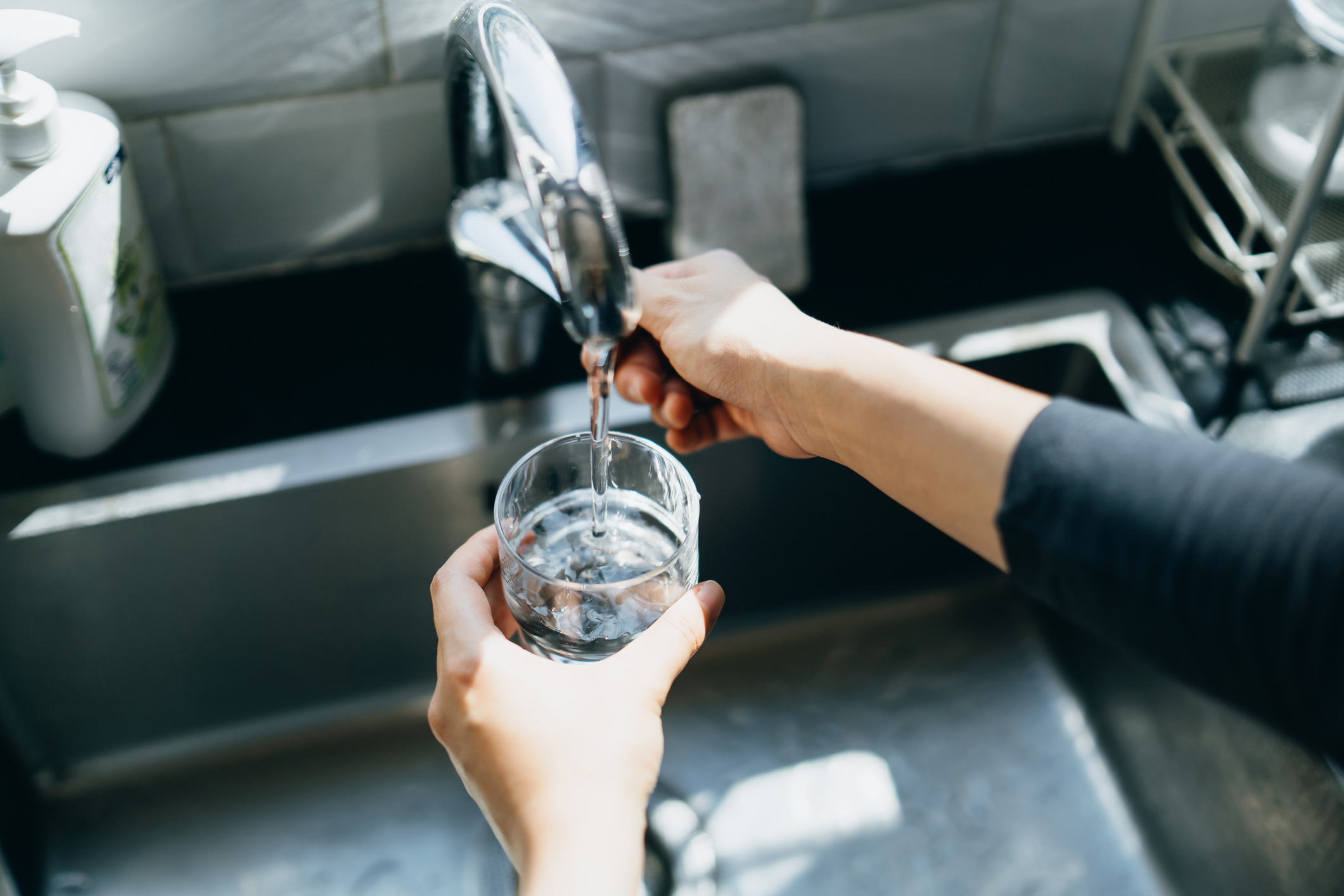TikTokers Are Claiming Adding Salt To Your Water Hydrates You Better — Here's What An Expert Says You Need To Know
Wait, WHAT!?
Recently on TikTok, people have been talking about the importance of adding salt to your drinking water. A quick search of "salt in water" will populate videos with millions of views about the topic.
TikToker @sadiebreann_ shared that she has been adding salt to her water for over a year because it helped her pee less and made her less swollen during her pregnancy. People are claiming the reason that it hydrates you better is because drinking water is stripped of minerals, and salt adds those vital minerals our bodies need back in — which, TBH makes sense.
But, TikTokers without PhDs don't have the best track record for unsolicited medical advice. So, we spoke to someone who actually has one: Board Certified Emergency Physician Dr. Joe Whittington who has been practicing for 16 years.

Dr. Joe confirmed that the idea of adding a pinch of salt to water for improved hydration has some basis in science. "Sodium is an electrolyte that helps regulate fluid balance in and out of cells. When you sweat or become dehydrated, you lose both water and electrolytes, including sodium. Adding a small amount of salt to water can aid in the rehydration process by helping replenish these lost electrolytes," he said.
And the amount of salt needed for effective hydration — as well as how much salt can be “too much” — varies based on individual needs and underlying health conditions, according to Dr. Joe. "That can make it difficult to give broad recommendations. A general guideline would be no more than a quarter teaspoon per liter of water to stay on the safe side."

Some people seem certain that only certain kinds of salt hydrate but, according to Dr. Joe, any salt that is high in sodium will technically work. "Specialty salts like Celtic salt, Himalayan pink salt, or even sea salt often contain trace minerals that table salt doesn't have — but the minerals are usually in minuscule quantities that likely won’t have a significant impact on overall health," he explained.

Since Dr. Joe clarified that salt doesn't replenish the minerals our bodies need, we asked him about minerals in tap water. He said that the mineral content in tap water, well water, and bottled water varies, but the desirable minerals you want are calcium, potassium, and magnesium. "You'll want to avoid bottled water that contains harmful substances like lead, arsenic, or excessive levels of fluoride. Some bottled waters may also contain additives or flavors that you might want to avoid, depending on your health needs." To find out what minerals are in your tap or well water, you can request a water quality report. Most bottled water companies also provide water quality reports that include information on mineral content.

Lastly, Dr. Joe said that while water can be a source of minerals, it's generally not a primary one. "A well-balanced diet usually provides all the minerals you need, so mineral-depleted water is rarely a significant health concern for the average person," he concluded.
PLEASE NOTE: Dr. Joe emphasized that individuals with underlying medical conditions should consult a healthcare provider before adding salt to their hydration routine. "Pregnant individuals should always consult their healthcare provider before making any significant changes to their diet or hydration routine, including adding salt to water. While hydration is essential during pregnancy, electrolyte imbalances can have different implications for this group. For most people, the key to proper hydration lies in balance; listen to your body and adjust your fluid and electrolyte intake according to your activity level, environment, and individual health needs. Always consult a healthcare provider for personalized medical advice," he concluded.
